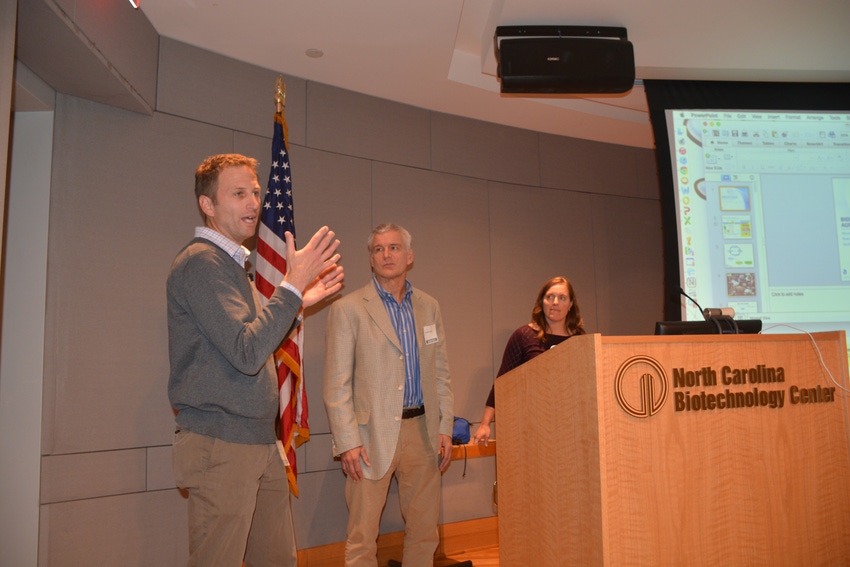
To organize the database, Jackson uses JMP Genomics software produced by SAS. Jackson, the principal scientist for General Mills, says the software allows him to do genomic prediction in breeding. The software allows him to sift through millions of markers to find a combination that predicts such traits as better yields or enhanced resistance to disease.

As a genomics expert for General Mills, Eric Jackson relies on a tremendous amount of data in his work to develop improved crop varieties that will eventually end up as finished products on the grocer’s shelf.
“We collect a ton of phenotypic data from all over the world; we have genotypic data. We have protein data and pathway data, and we really have to organize this data in a way that General Mills can use it because we were creating a whole lot of data that never gets used, so that was a huge waste of resources,” Jackson explained at a forum for agricultural biotechnology professionals at the North Carolina Biotechnology Center in Research Triangle Park Nov. 6.
To organize the database, Jackson uses JMP Genomics software produced by SAS. Jackson, the principal scientist for General Mills, says the software allows him to do genomic prediction in breeding. The software allows him to sift through millions of markers to find a combination that predicts such traits as better yields or enhanced resistance to disease.
“Without the built-in modeling tools, this work would be like searching for the proverbial needle in the haystack,” Jackson says.
At the Research Triangle Park forum, Jackson explained how the software has enabled General Mills to improve its sweet corn varieties. The software has really raised the bar in General Mills’ sweet corn program, Jackson says.
Using traditional methodologies, it would take General Mills up to 18 years to develop a sweet corn variety from the first step of plant breeding to the final step of a product on the shelf. Jackson says the software has allowed General Mills to shorten this down to four to six years.
Russ Wolfinger, director of scientific discovery and genomics for SAS, says JMP Genomic Software takes genomic data and makes it predictive. This is a particularly valuable tool for plant breeders because it makes the breeding cycle quicker.
“The main thing that we do is build predictive models,” Wolfinger explains. ”The idea would be to take these traits that General Mills is interested in, such as yields, beta-glucan content, disease resistance , and build predictive models for each of those using the genomic markers. This is not an easy task. One of the big challenges is that the data sets tend to be really wide. You will have 100 or so lines of sweet corn or oat varieties and these varieties may have 10s of thousands of markers.”
With JMP Genomics software, breeders can sift through millions of markers to develop improved varieties, Wolfinger says. The software allows them to look at multiple traits at once, which will helps them develop varieties with such traits as higher beta-glucan content, bigger yields and improved disease resistance.
This ability to use predictive models in genomic selection has made plant breeders “super excited” because it makes their work faster and easier.
“Almost all of the big ag biotech companies and a lot of the top breeders in the country are starting to do this kind of thing,” Wolfinger says. “It’s really taking the breeding world by storm.”
About the Author(s)
You May Also Like





